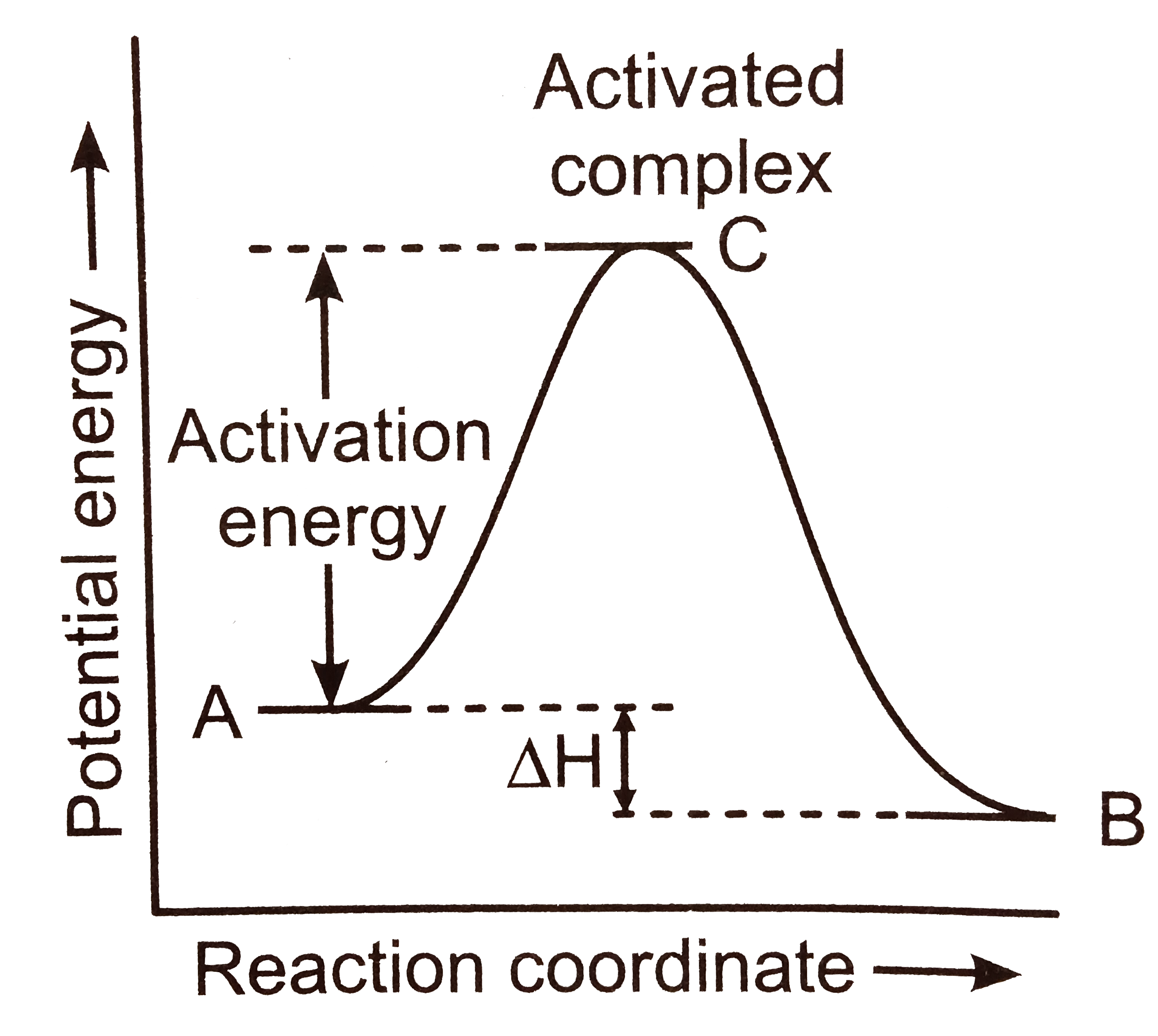A reaction from unknown reactants (R) : R→P is molar entropy of the products (P) is measured to be 460 J/mol K, and 71.3 kJ of heat was given off in the process to the surroundings when 1 mol reacted, then the molar entropy of the reactants has to be
at least -230 J/mol K
at the most 690 J/mol K
at the most 230 J/mol K
at the least 690 J/mol K
The correct Answer is:B
Let us solve this at boundary condition of ΔG∘=0
ΔS∘=ΔH0T=−71.3×1000310=−230JK−1
⇒−230JK−1=S0m(R)=460JK−1−S0m(R)
⇒S0m(R)=690JK−1. It is the maximum value of entropy which the reactant can have. If S0m>690JK_1mol−1,ΔG0>0
Topper's Solved these Questions
- THERMODYNAMICSBOOK - NARAYNACHAPTER - THERMODYNAMICSEXERCISE - Passages
13 Videos
- THERMODYNAMICSBOOK - NARAYNACHAPTER - THERMODYNAMICSEXERCISE - Matching type
6 Videos
- THERMODYNAMICSBOOK - NARAYNACHAPTER - THERMODYNAMICSEXERCISE - Level -V
106 Videos
- STRUCTURE OF ATOMBOOK - NARAYNACHAPTER - STRUCTURE OF ATOMEXERCISE - EXERCISE - IV EXEMPLAR PROBLEMS
24 Videos
Similar Questions
The molar heat capacity of water at constant pressure P is 60JK−1mol−1. When 1.0kJ of heat is supplied to 100g of water, which is free to expand, find the increase in temperature of water.
View Solution30.4 kJ of heat is required to melt 1 mol of sodium chloride.The entropy change during melting of 28.4 J mol−1K−1. Calculate the melting point of sodium chloride.
View Solution
Knowledge Check
The molar heat capacity of water at constant pressure P is 75JK−1mol−1. When 1.0kJ of heat is supplied to 1000 g of water , which is free to expand, the increase in temperature of water is
A1.2KB2.4KC4.8KD0.24KThe molar heat capacity of water at constant pressure, CP , is 75JK−1mol−1. When 1.0kJ of heat is supplied to 100g of water which is free to expand, the increase in temperature of water is
A1.2 KB2.4 KC4.8 KD6.5 KThe molar heat capacity of water at constant pressure, CP , is 75JK−1mol−1. When 1.0kJ of heat is supplied to 100g of water which is free to expand, the increase in temperature of water is
A6.6KB1.2KC2.4KD4.8K
The molar heat capacity of water at constant pressure, Cp is 75 J K−1mol−1. When 10 kJ of heat is supplied to 1 kg water which is free to expand, the increase in temperature of water is
View SolutionThe molar heat capacity of water at constant pressure P , is 75JK−1mol−1 . When 1.0KJ of heat is supplied to 100g of water which is free to expand, the increase in temperature of water is
View SolutionOne mole of an ideal gas undergoes a process such that P∝1T. The molar heat capacity of this process is 4R.
View SolutionThe energy required to form the intermediate, called activated complex (C) is known as activation energy (Ea). The diagram is obtained by plotting potential energy vs. reaction coordinate. Reaction coordinate represents the profile of energy change when reactants change into products.
Some energy is released when the complex decomposes to form products. So, the heat of the reaction depends upon the nature of reactants and products.

If a reaction A+B→C, is exothermic to the extent of 30kJmol−1 and the forward reaction has an activation energy of 249kJmol−1, the activation energy for reverse reaction in kJmol−1 is:
View SolutionIF the melting point of ice is 273 K and molar enthalpy of usion for ice =6.0kJmol−1, the change in entropy for the fusion of 1 mole of ice will be
View Solution
